By Anaïs Remili, a former PhD student at McGill University
In November 2022, I had the extraordinary privilege of attending The Wildlife Conference in the picturesque city of Spokane, Washington. This remarkable experience was made possible by the generous travel grant provided by the Quebec Centre for Biodiversity Science (QCBS). The conference not only allowed me to showcase my research on killer whale diets but also offered a platform to engage with fellow conservationists, attend captivating talks, and broaden my horizons on science communication. I am incredibly grateful to QCBS for supporting my journey to Spokane and enabling me to participate in this transformative event.
Presenting my Research
The highlight of my time at the conference was undoubtedly the opportunity to present the modeling method I had developed for reconstructing the diets of killer whales using the lipids found in their blubber. Briefly, we use a statistical model called Quantitative Fatty Acid Signature Analysis to estimate the percentage of different prey species in killer whales’ diets. The presentation was met with great enthusiasm, and I was thrilled to share my findings with a receptive audience. It was truly an honor to contribute to the scientific community and be part of a conference that fostered knowledge exchange and innovation.
Inspiring Talks on Wildlife Conservation
The Wildlife Conference offered a diverse array of talks and sessions that showcased cutting-edge research and innovative conservation efforts. I was fortunate to attend several captivating presentations on various wildlife conservation topics. From the impact of climate change on migratory patterns to the challenges faced by endangered species, each talk left a lasting impression and ignited my passion for protecting our planet’s biodiversity. It was inspiring to witness the dedication and expertise of researchers from around the world and the impactful work they were doing to safeguard our natural heritage.
The Science Communication Session
One session that particularly caught my attention was focused on science communication. It highlighted the importance of effectively communicating scientific knowledge to a wider audience, fostering public engagement, and creating positive societal change. The session provided valuable insights and practical tools for conveying complex scientific concepts in a way that is accessible and engaging to non-experts. I left the session with a newfound appreciation for the power of effective science communication and a determination to enhance my own outreach efforts.
For those interested in getting involved in science communication, conferences like this one are excellent for gaining insights, learning best practices, and networking with others who share a passion for outreach. However, there are also many other avenues to explore. Social media engagement is a powerful tool for reaching broader audiences, particularly younger generations. Platforms like Twitter, Instagram, and YouTube can be used to share research findings, behind-the-scenes glimpses of scientific work, and even live Q&A sessions.
Gratitude to QCBS
None of this would have been possible without the invaluable support of the QCBS. The travel grant provided by QCBS not only alleviated the financial burden of attending the conference but also demonstrated their commitment to fostering scientific collaboration and supporting the next generation of researchers. I am immensely grateful for their trust in my work and for enabling me to partake in this enriching experience. If you wish to find out more about my research and science communication efforts, please feel free to connect: https://anaisremili.com/
About the author: Anaïs Remili is a former PhD student at McGill University, under the supervision of Dr. Melissa McKinney. Currently, she is a postdoctoral fellow at Simon Fraser University. She works on killer whale feeding ecology and ecotoxicology. She has always had a passion for marine mammals.

0 Comments